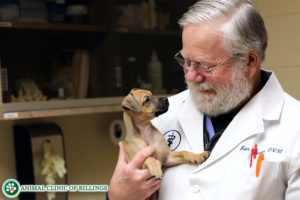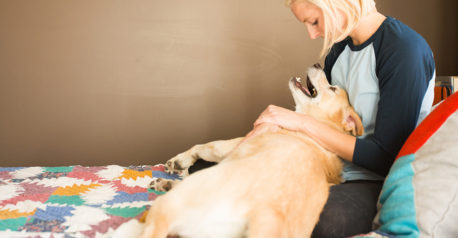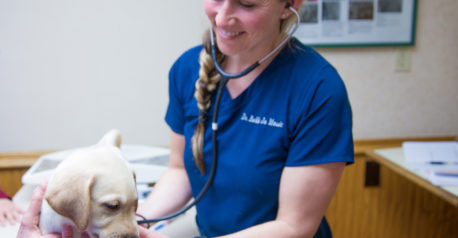laryngeal tie back surgery
DISCHARGE INSTRUCTIONS
We would like to thank you for choosing us to participate in the care of your dog. Diligent convalescent care is critical for a successful outcome. Please follow these instructions carefully and completely.
MEDICATIONS:
Please give the medications as directed on the label. Although side effects are uncommon, please stop giving medication immediately if vomiting, diarrhea, dark stool, or loss of appetite occur and contact our clinic.
PRESCRIBED:
Diphenhydramine (Benadryl), administer ___mg twice daily. You can get these medications over the counter at your local pharmacy. Your dog will need to be on this medication long term.
WOUND CARE:
Check the incision site at least twice daily for any signs of redness, swelling or discharge. For mild swelling, apply a warm damp compress to the site for 5 minutes, 2 times daily. Please contact us if there is any excessive swelling or discharge.
RESTRICTED ACTIVITY:
Your dog should not be allowed to run, jump, or play fro 2 weeks (until sutures are removed). After that time, slowly resume normal activity. It is very important to minimize any exertion, activity, and barking for the next 2-3 weeks. Activity should be restricted to short, controlled leash walks to defecate and urinate. Avoid placing a collar or leash around the neck. A harness can be used, or a slip lead can be placed around one front leg.
DIET:
Feed canned food formed into small meatballs until sutures are removed. After the suture removal it is ok to resume a normal diet.
COMMENTS:
Some hacking or retching is normal while eating & drinking. This should improve over time, though may not resolve completely. Your dog is at low risk for developing pneumonia. A moist productive cough is worrisome however and should be evaluated immediately. You may also notice that your dog’s voice will sound like he or she has laryngitis, but this is not a painful condition and is considered normal following the surgery. The vocal cords do not function properly from the paralysis and they have been altered by the surgery, creating the voice change. Watch your dog closely over the next several weeks as the recovery process from surgery of the small airway, with its associated problems, can sometimes result in difficulty breathing. If this occurs, please keep your dog calm and bring him or her into our clinic for evaluation.
RECHECKS AND SUTURE REMOVAL:
Suture removal should be performed 2 weeks post operatively. Please call in advance to schedule this appointment with Dr. Sherburne. It is extremely important that your dog not be allowed to scratch the incision.
Please note that your dog has had general anesthesia and pain medications that slow down the intestinal transit time; therefore, he/she may not defecate for up to 3-5 days. Also, if your dog has not been eating well while hospitalized, he/she may not produce any feces until her appetite improves. If you have any questions or concerns, or notice any straining to defecate, please call us.
It is important that you follow these instructions closely. The postoperative care is as important for a successful outcome as is the surgery itself. If you have any questions or concerns about your dog’s condition or any of the instructions, please call the Animal Clinic of Billings. Thank you for trusting us with the care of your dog. We appreciate your confidence in our doctors and staff.
Thank you,
Animal Clinic of Billings and Animal Surgery Clinic

Let our highly trained and experienced team of veterinarians and veterinary technicians help you keep your cat as happy and healthy as they can be.
Call the Animal Clinic of Billings and Animal Surgery Clinic to schedule your pet cat’s next wellness examination with one of our veterinarians today!
406-252-9499 REQUEST AN APPOINTMENT
ANIMAL CLINIC OF BILLINGS AND ANIMAL SURGERY CLINIC
providing our region’s companion animals and their families what they need and deserve since 1981
1414 10th St. West, Billings MT 59102
406-252-9499



